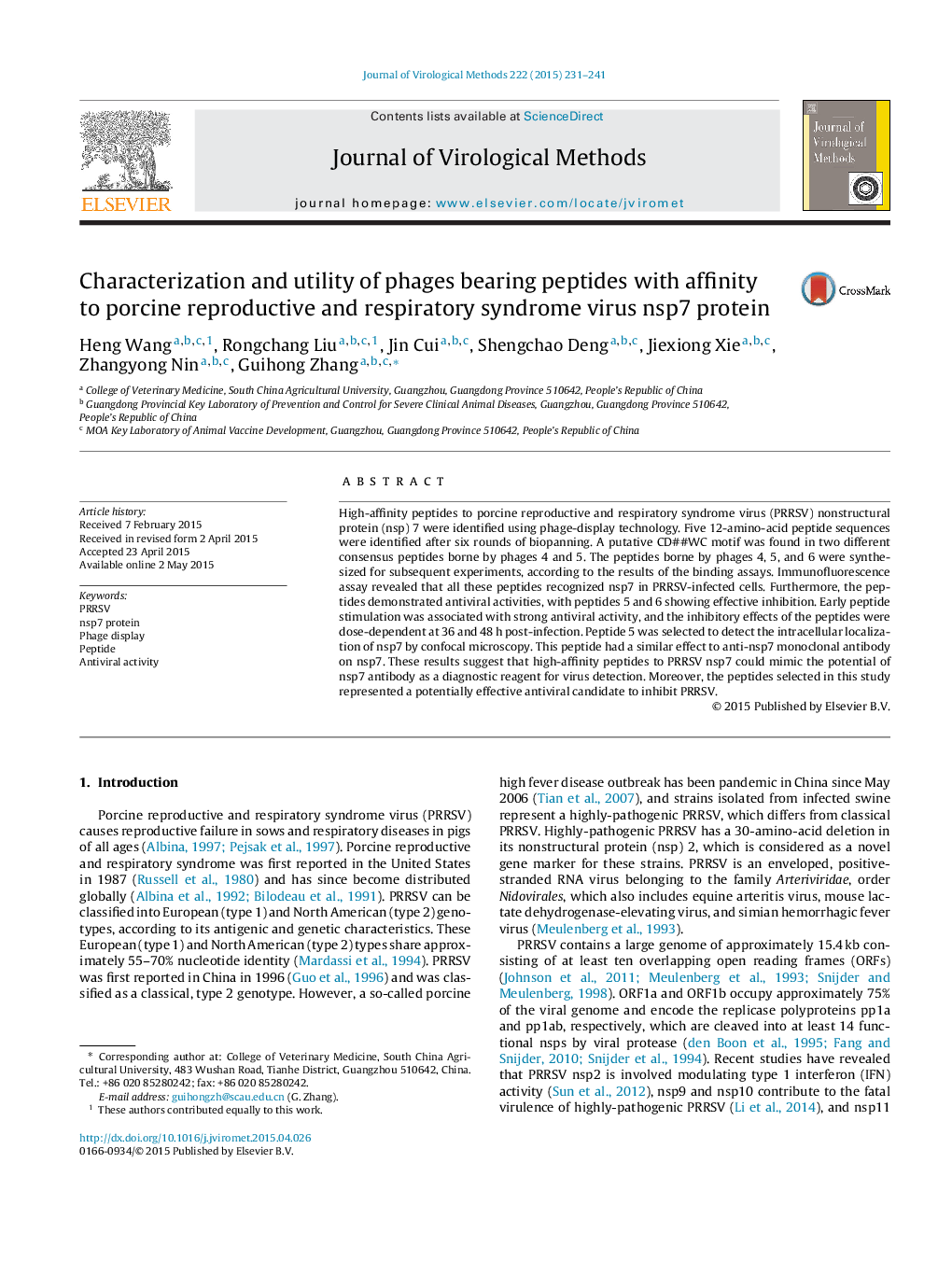| کد مقاله | کد نشریه | سال انتشار | مقاله انگلیسی | نسخه تمام متن |
|---|---|---|---|---|
| 6133230 | 1593455 | 2015 | 11 صفحه PDF | دانلود رایگان |
عنوان انگلیسی مقاله ISI
Characterization and utility of phages bearing peptides with affinity to porcine reproductive and respiratory syndrome virus nsp7 protein
دانلود مقاله + سفارش ترجمه
دانلود مقاله ISI انگلیسی
رایگان برای ایرانیان
موضوعات مرتبط
علوم زیستی و بیوفناوری
ایمنی شناسی و میکروب شناسی
ویروس شناسی
پیش نمایش صفحه اول مقاله

چکیده انگلیسی
High-affinity peptides to porcine reproductive and respiratory syndrome virus (PRRSV) nonstructural protein (nsp) 7 were identified using phage-display technology. Five 12-amino-acid peptide sequences were identified after six rounds of biopanning. A putative CD##WC motif was found in two different consensus peptides borne by phages 4 and 5. The peptides borne by phages 4, 5, and 6 were synthesized for subsequent experiments, according to the results of the binding assays. Immunofluorescence assay revealed that all these peptides recognized nsp7 in PRRSV-infected cells. Furthermore, the peptides demonstrated antiviral activities, with peptides 5 and 6 showing effective inhibition. Early peptide stimulation was associated with strong antiviral activity, and the inhibitory effects of the peptides were dose-dependent at 36 and 48Â h post-infection. Peptide 5 was selected to detect the intracellular localization of nsp7 by confocal microscopy. This peptide had a similar effect to anti-nsp7 monoclonal antibody on nsp7. These results suggest that high-affinity peptides to PRRSV nsp7 could mimic the potential of nsp7 antibody as a diagnostic reagent for virus detection. Moreover, the peptides selected in this study represented a potentially effective antiviral candidate to inhibit PRRSV.
ناشر
Database: Elsevier - ScienceDirect (ساینس دایرکت)
Journal: Journal of Virological Methods - Volume 222, 15 September 2015, Pages 231-241
Journal: Journal of Virological Methods - Volume 222, 15 September 2015, Pages 231-241
نویسندگان
Heng Wang, Rongchang Liu, Jin Cui, Shengchao Deng, Jiexiong Xie, Zhangyong Nin, Guihong Zhang,